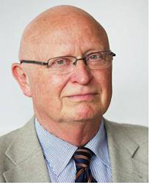[30th 한국원자력연차대회]Vaclav Paces , Chairman, Supervisory Board of CEZ Group, Czech Republic

Czech Republic operates two nuclear power plants:Dukovany(built 1978-1987) and Temelin(built 1987-2003). Each of them produces about 15TWh of electricity. This production covers less than half of the country’s electricity consumption.
The plans are to close down several lignite power plants in order to reduce CO2 and other types of emissions. The decrease in electricity production should be replaced by decentralized production in community small generators of various types including micro cogeneration, by increase of production using renewable sources, and by building new nuclear reactors. Nuclear energy is considered by many as temporary technology to overcome a period of time before new smart, clean, safe and economically effective technologies(nuclear fusion, hydrogen economy, new types of electricity accumulation) are developed and implemented.
The important step to increase European independence and stability is the new initiative of integrated energy policy. It will not be an easy task as different EU member states have very different energy policies. For the central European countries Germany, Austria and the Czech Republic a scenario may be that Germany can provide more wind energy, Austria water storage in the mountains and the Czech Republic electricity trans miss ion and system control.
On the other hand, an emerging problem is a complete refusal of nuclear energy in Germany and Austria and the overall acceptance of nuclear energy by the Czech population.
Thus building of new nuclear power plants in the Czech Republic is still open.
The Czech Republic has a long term experience and developed know-how to build, operate and maintain nuclear technology. The final decision will also be highly dependent on development and implementation of smart technologies. Will they be centralized at the European level or will they remain at the level of individual EU member states? How all these plans and possibilities affect European security?

